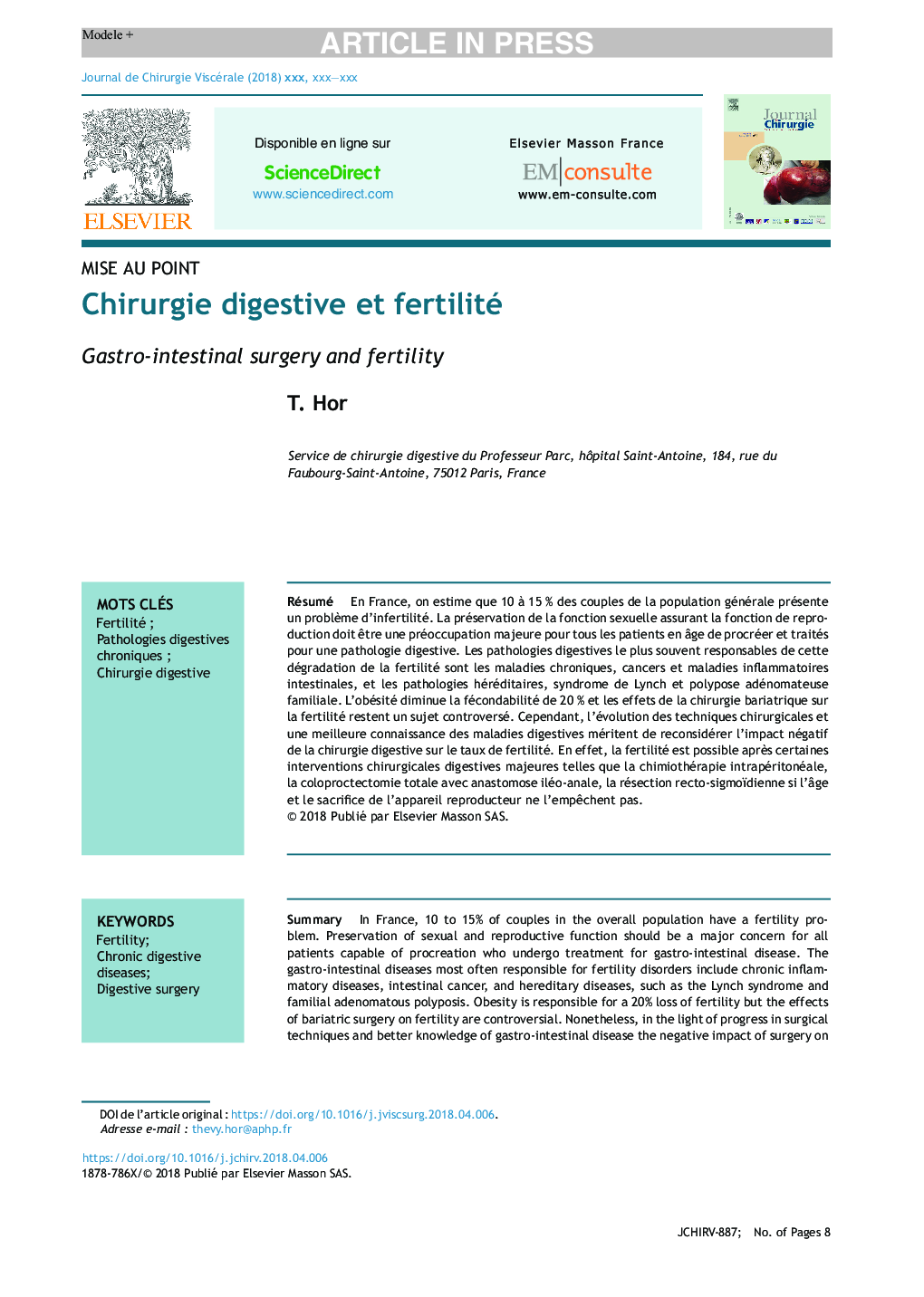| Article ID | Journal | Published Year | Pages | File Type |
|---|---|---|---|---|
| 8728797 | Journal de Chirurgie Viscérale | 2018 | 8 Pages |
Abstract
In France, 10 to 15% of couples in the overall population have a fertility problem. Preservation of sexual and reproductive function should be a major concern for all patients capable of procreation who undergo treatment for gastro-intestinal disease. The gastro-intestinal diseases most often responsible for fertility disorders include chronic inflammatory diseases, intestinal cancer, and hereditary diseases, such as the Lynch syndrome and familial adenomatous polyposis. Obesity is responsible for a 20% loss of fertility but the effects of bariatric surgery on fertility are controversial. Nonetheless, in the light of progress in surgical techniques and better knowledge of gastro-intestinal disease the negative impact of surgery on fertility warrants attention. Effectively, fertility can be preserved after certain major gastro-intestinal operations such as cytoreductive surgery with intraperitoneal chemotherapy, total coloprotectomy with ileoanal anastomosis and rectosigmoid resection, as long as the patient's age permits and resection of the reproductive organs is not necessary.
Related Topics
Health Sciences
Medicine and Dentistry
Gastroenterology
Authors
T. Hor,
